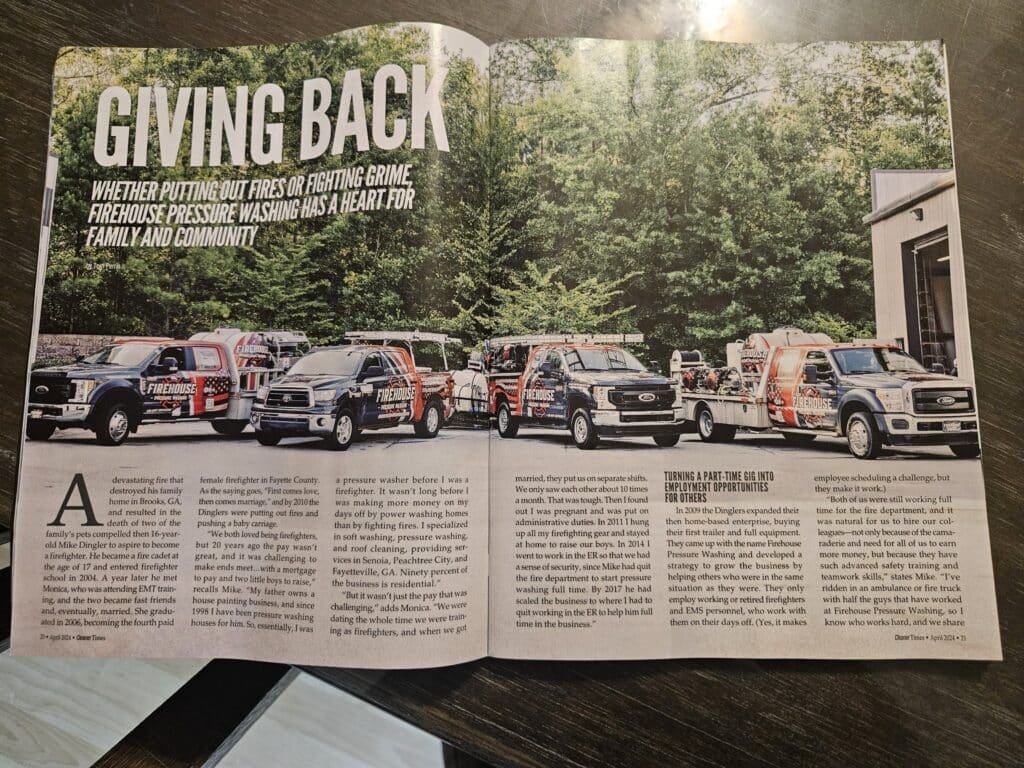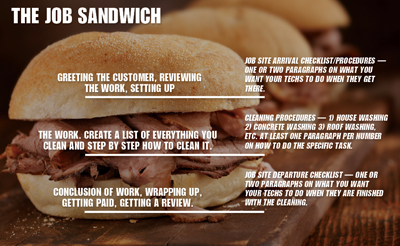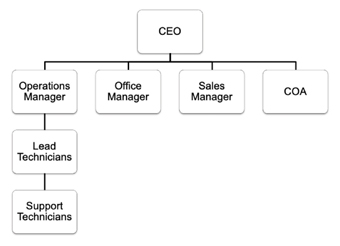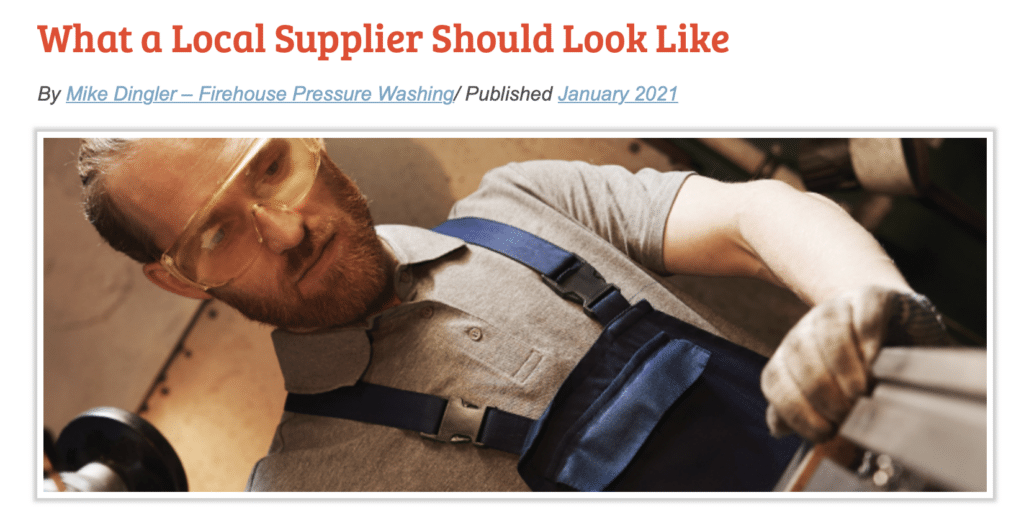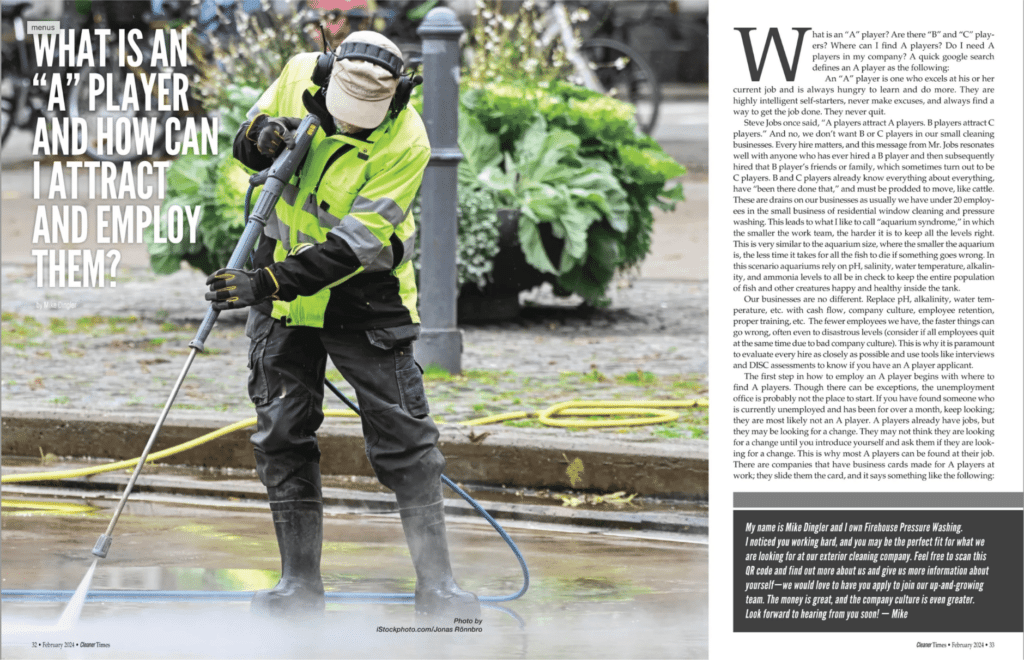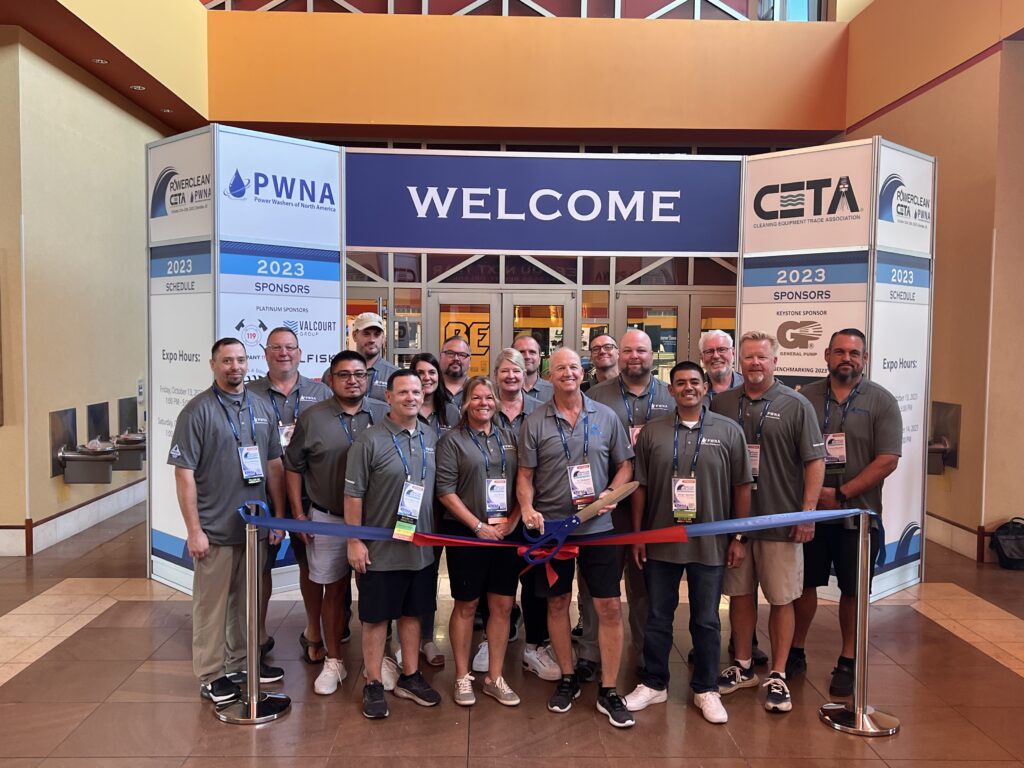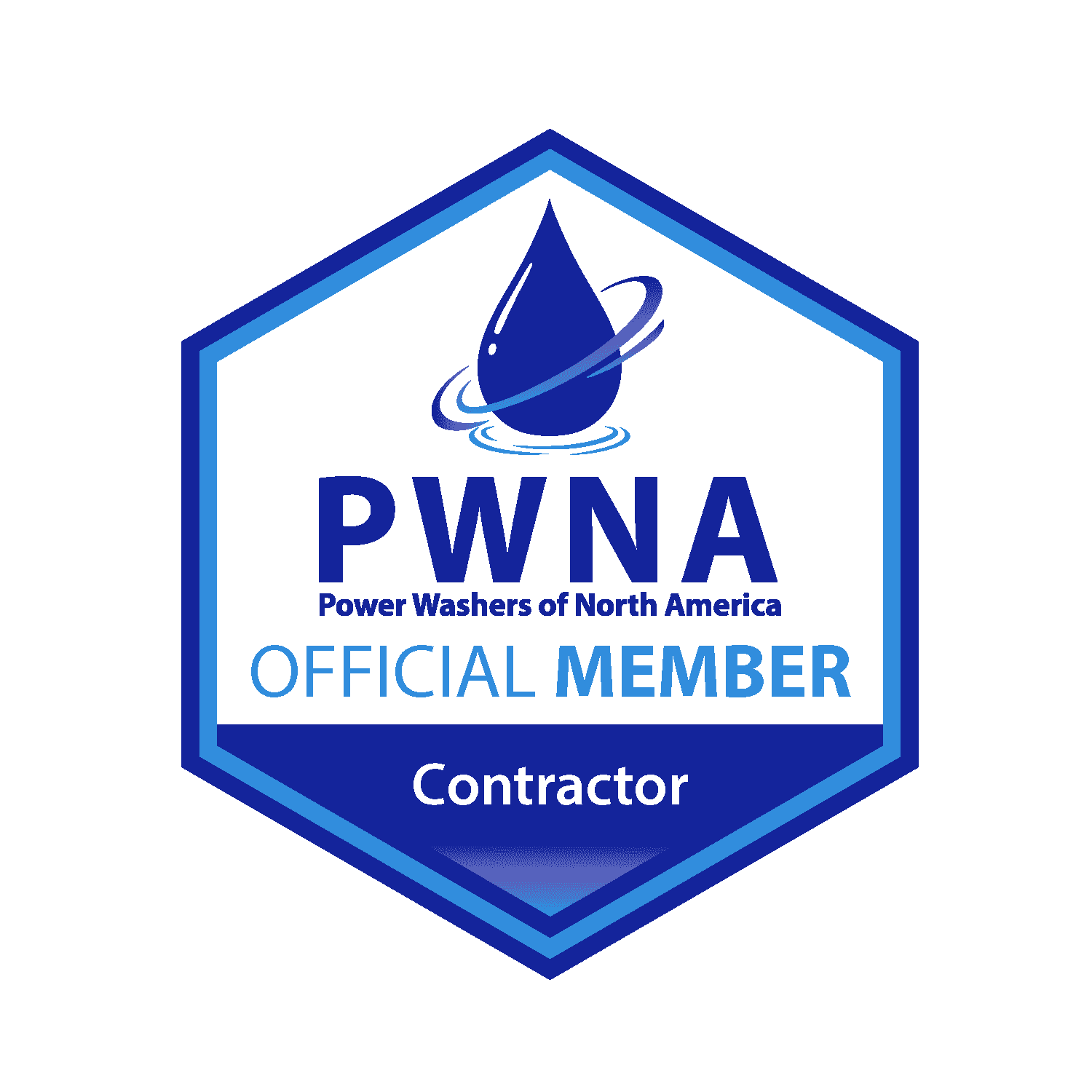What is an “A” player? Are there “B” and “C” players? Where can I find A players? Do I need A players in my company? A quick google search defines an A player as the following:
An “A” player is one who excels at his or her current job and is always hungry to learn and do more. They are highly intelligent self-starters, never make excuses, and always find a way to get the job done. They never quit.
Steve Jobs once said, “A players attract A players. B players attract C players.” And no, we don’t want B or C players in our small cleaning businesses. Every hire matters, and this message from Mr. Jobs resonates well with anyone who has ever hired a B player and then subsequently hired that B player’s friends or family, which sometimes turn out to be C players. B and C players already know everything about everything, have “been there done that,” and must be prodded to move, like cattle. These are drains on our businesses as usually we have under 20 employees in the small business of residential window cleaning and pressure washing. This leads to what I like to call “aquarium syndrome,” in which the smaller the work team, the harder it is to keep all the levels right. This is very similar to the aquarium size, where the smaller the aquarium is, the less time it takes for all the fish to die if something goes wrong. In this scenario aquariums rely on pH, salinity, water temperature, alkalinity, and ammonia levels to all be in check to keep the entire population of fish and other creatures happy and healthy inside the tank.
Our businesses are no different. Replace pH, alkalinity, water temperature, etc. with cash flow, company culture, employee retention, proper training, etc. The fewer employees we have, the faster things can go wrong, often even to disastrous levels (consider if all employees quit at the same time due to bad company culture). This is why it is paramount to evaluate every hire as closely as possible and use tools like interviews and DISC assessments to know if you have an A player applicant.
My name is Mike Dingler and I own Firehouse Pressure Washing. I noticed you working hard, and you may be the perfect fit for what we are looking for at our exterior cleaning company. Feel free to scan this QR code and find out more about us and give us more information about yourself—we would love to have you apply to join our up-and-growing team. The money is great, and the company culture is even greater. Look forward to hearing from you soon!
— Mike
The first step in how to employ an A player begins with where to find A players. Though there can be exceptions, the unemployment office is probably not the place to start. If you have found someone who is currently unemployed and has been for over a month, keep looking; they are most likely not an A player. A players already have jobs, but they may be looking for a change. They may not think they are looking for a change until you introduce yourself and ask them if they are looking for a change. This is why most A players can be found at their job. There are companies that have business cards made for A players at work; they slide them the card, and it says something like the following:
Link that QR code to a landing page on your website that collects the applicant’s email address and tells them more about working for your company. Even better, link that QR code to a simple form that asks them key questions to see if they are a good fit. A players are already at work every day, but often they outgrow the parameters and pay scale of their current place of employment. Just like finding a date for the prom, all you have to do is ask, since the worst they could say is “no.” A players are often recruited from other A players who already work for you as well. Simply asking your favorite A player employee if they have any friends looking for work will often yield excellent results as A players normally socialize with other A players while off the clock. Wherever you may find an A player, your next goal is to hire them; and if you want A players to work for you, your company needs to scream excellence. No A player will go to work for a B player for long, and no B or C player will own a company for long, so time has its way of working these things out.
Employing an A player takes the right culture, pay, workload, and life balance. The company has to be organized. If you were going to take a cruise, here are two choices that you may have. Each captain tells you the following: each cruise costs the same, will be gone the same amount of time, and leaves from the same place.
Cruise Boat A: Here is your itinerary, here is where we will be going, here is how long we will dock at each port, here are fun excursions for you to do while in port, and here is what we will do on the ship between ports, including what we will wear each night for dinner, what we will eat for dinner, and what we will have for dessert. Come on, let’s go have fun.

Cruise Boat B: We will leave, we will float around for a while, we may stop by this one place that was nice last time, and I’m not sure what the cook has in store for dinner, but it will be good. Come on, let’s go have fun.
Which boat do you choose? If you choose A, you’re an A player, and you need other A players to work with you. They will be attracted to your business for its organization, processes, and procedures. You will need to have an employee handbook, safety manual, and operations manual in place to give your new A-player employee all the tools he or she needs to succeed. Training videos are also great tools to keep in a folder on a drive that is easily accessible for your A player to learn. A promotional pathway is also a good thing to lay out for your A players; this gives them a clear vision of what is expected of them in their role and how to advance through roles (and pay) throughout the company.
If you choose B, sorry; you aren’t an A player, and no A players will want to come work for you. “We can’t find good help” may be a phrase you use, or, “No one wants to work.” These phrases are usually stated about B or C players, and if you have no structure or pathway to advancement in your company, no A players will be attracted to you; they will keep working where they are currently employed, all the while keeping you dissatisfied about your current workforce. Leadership starts at the bottom, not the top. Imagine the triangle image with a CEO at the top and all other employees below. That worked great in the 1980s and 1990s, but today it doesn’t work all that well. Flip the triangle (see two triangle images below), have the CEO support all its staff, not trickle-down SOP’s, etc., and you’ve got a great company culture in the making. To be a great leader you must be an A player and attract other A players. The reason that prom date may say, “No,” is you just don’t look, speak, act, or do things an A player would. Take a look at yourself (and your company) in the mirror, and make sure you look your best before asking someone else to give you their best.
Mike Dingler is owner of Firehouse Pressure Washing, Soft Washing, and Roof Cleaning Inc. He has been in the exterior cleaning industry since 1996. In addition, his book, Small Service Based Business Basics: How to Run Your Business and Not Let Your Business Run You, is available on Amazon. For more information, call 770-468-0014 or visit www.firehousepowerwash.com.

